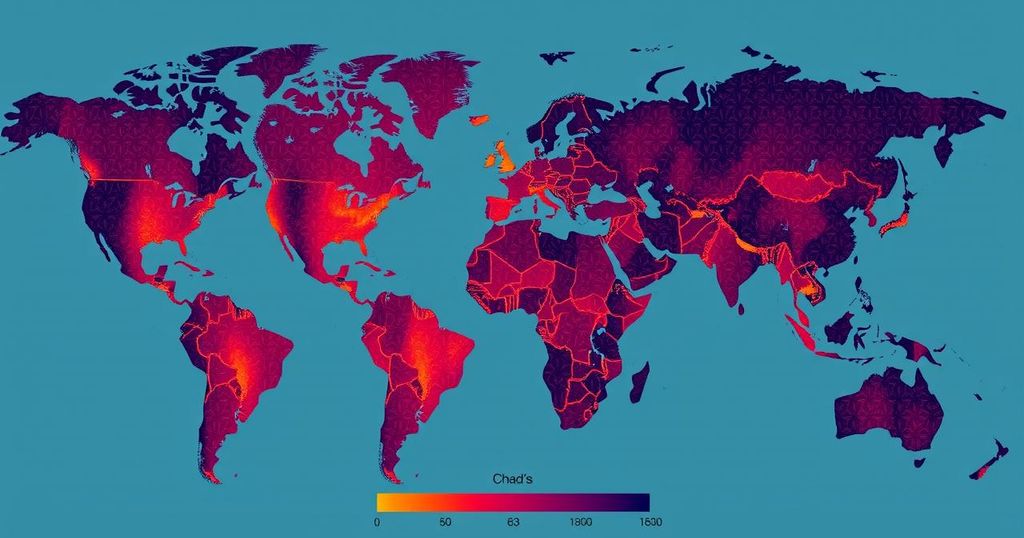Chad Achieves First CAP Warning and Launches International Data Sharing

In January 2024, Chad published its first CAP warning and initiated international data sharing, greatly enhancing its climate resilience. With the support of WMO and NORCAP, Chad’s Agence Nationale de la Météorologie had significantly improved its meteorological infrastructure, enabling real-time data transmission and effective weather communication. This success serves as a model for other African nations in leveraging digital tools to strengthen their climate services.
On January 2024, Chad achieved a significant milestone by publishing its first CAP (Common Alerting Protocol) warning and initiating international data sharing. This accomplishment not only enhances Chad’s climate resilience but also demonstrates the effectiveness of digital tools and capacity-building initiatives aimed at overcoming existing challenges faced by National Meteorological and Hydrological Services (NMHSs) across Africa. It paves the way for effective early warning systems that can save lives and support communities vulnerable to climate impacts.
As of the beginning of 2024, approximately 60% of NMHSs in Africa lacked functional websites, with a notable 30% having no online presence whatsoever. Furthermore, nearly 37% of these services had not issued any weather warnings in the preceding six months. The dysfunctionality of Automatic Weather Stations (AWS) compounded these issues, as many were unable to transmit valuable data to global centers due to fragmented systems and software incompatibilities. As a result, the ability of NMHSs to disseminate critical weather and climate information was severely hampered.
To tackle these gaps in climate service delivery, the World Meteorological Organization (WMO) collaborated closely with Chad’s Agence Nationale de la Météorologie – Météo Tchad (ANAM) over the past year. Efforts included enhancing ANAM’s communication channels, improving the website for better information dissemination, implementing interactive data visualization tools for impact-based forecasting, and upgrading the observation network to facilitate real-time data sharing. The culmination of this initiative was marked by a mission to Chad in October 2024, backed by the Climate Risk and Early Warning Systems (CREWS) Initiative, which reinforced WMO’s mentoring and technical support.
The mission’s success was highlighted by Chad’s capability to publish its first CAP warnings while beginning to share data with international weather systems. This real-time data exchange is facilitated by 19 AWS stations, significantly contributing to the global weather forecasting efforts and enhancing international climate monitoring. Prior to this initiative, Chad’s AWS stations had not participated in global data sharing, signifying a remarkable breakthrough for the nation and serving as a model for other African countries to replicate.
Chad’s advancements are made possible by innovative open-source tools developed by WMO, such as ClimWeb, which aids in the efficient publication and management of climate services, and the CAP Composer—a user-friendly platform for creating alerts in CAP format. The WIS2Box Automated Data Loader further streamlines the integration of data from diverse AWS into global systems.
This success narrative is part of WMO’s broader initiative to digitally transform NMHSs in Africa. Chad’s achievements illustrate the potential for other countries to adopt similar technologies, thus significantly improving climate service delivery and AWS interoperability. By embracing such digital innovations, NMHSs can substantially enhance climate resilience and contribute to building a safer and more sustainable future across the continent.
Addressing the challenges faced by National Meteorological and Hydrological Services (NMHSs) in Africa is essential for enhancing climate resilience and improving early warning systems. A majority of these services struggle with outdated infrastructures and lack of technical capabilities, which hinder their ability to provide accurate weather information and warnings to vulnerable populations. As digital solutions become more accessible, initiatives such as those led by the WMO can play a crucial role in modernizing NMHSs and enabling effective international data sharing. The World Meteorological Organization has been at the forefront of this transformation, supporting countries like Chad in improving their meteorological capabilities. Many NMHSs in Africa do not possess functional websites or the ability to issue timely weather warnings, further exacerbating the risks climate change poses to communities. Recognizing these deficiencies, the WMO and supporting entities like NORCAP have initiated numerous technical assistance programs to bolster meteorological services through digital tools and real-time data-sharing capabilities.
The publication of Chad’s first CAP warning and commencement of international data sharing mark pivotal advancements in the country’s climate resilience and early warning capabilities. This achievement demonstrates the potential of digital transformation to overcome historical challenges faced by NMHSs in Africa. By leveraging innovative tools and fostering international cooperation, Chad is establishing a meaningful precedent for other nations, ultimately enhancing global efforts in climate monitoring and disaster preparedness. The collaborative work of WMO and its partners in modernizing Chad’s meteorological services is a significant step toward creating a safer and more sustainable future for all.
Original Source: www.preventionweb.net






